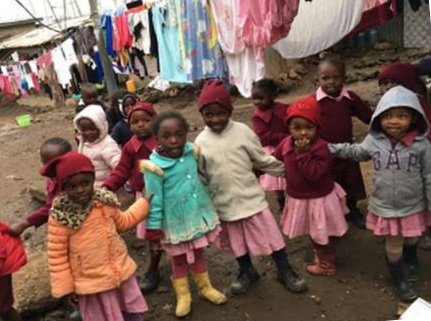From Tushinde…
In the slums of Africa, child care is a problem. The slum population is transient, so often there is no family network to take care of small babies and toddlers whilst the mum goes to work. Most women living in the slums are single mums and have low levels of literacy and education so therefore cannot get work that pays more than £1.50 a day. With that £1.50, the mother will have to feed her children and pay the rent and school fees. There is little left over for caring for their preschool children.
Some women will leave their baby completely alone, locked in a room for up to 12 hours. Others will take their child to an informal daycare. This is where a local woman will look after up to 20 babies at once in her house, which is rarely larger than a 10″x 10″ shack with a dirt floor and no running water.
Tushinde knows the importance of the first thousand days of a child’s life; from conception until his or her second birthday. The level of nutrition and stimulation and protection from disease in this precious time can have an enduring impact on the child’s growth and intelligence.
If a child is left in a room, staring at the ceiling for hours on end and not eating from morning to evening, it can cause lasting damage. If a child is in a crowded room and exposed to multiple infections as well as not being fed or changed, this too can have a negative impact.
Research by Oxfam and our research has found that slum malnutrition rates in this age group are around 25%. There are two types of malnutrition; acute and chronic (undernutrition). Acute malnutrition can lead to death either directly or due to the child’s inability to fight off disease. Undernutrition, never quite getting enough food, can lead to developmental delay, stunting in growth and low intelligence.
How you can help…
Fiona Foundation for Kids is supporting Tushinde by funding a second daycare unit called Fi Day Care. Tushinde has had great success in operating the current Day Care Programme and with your help a second unit can be maintained…thank you.

